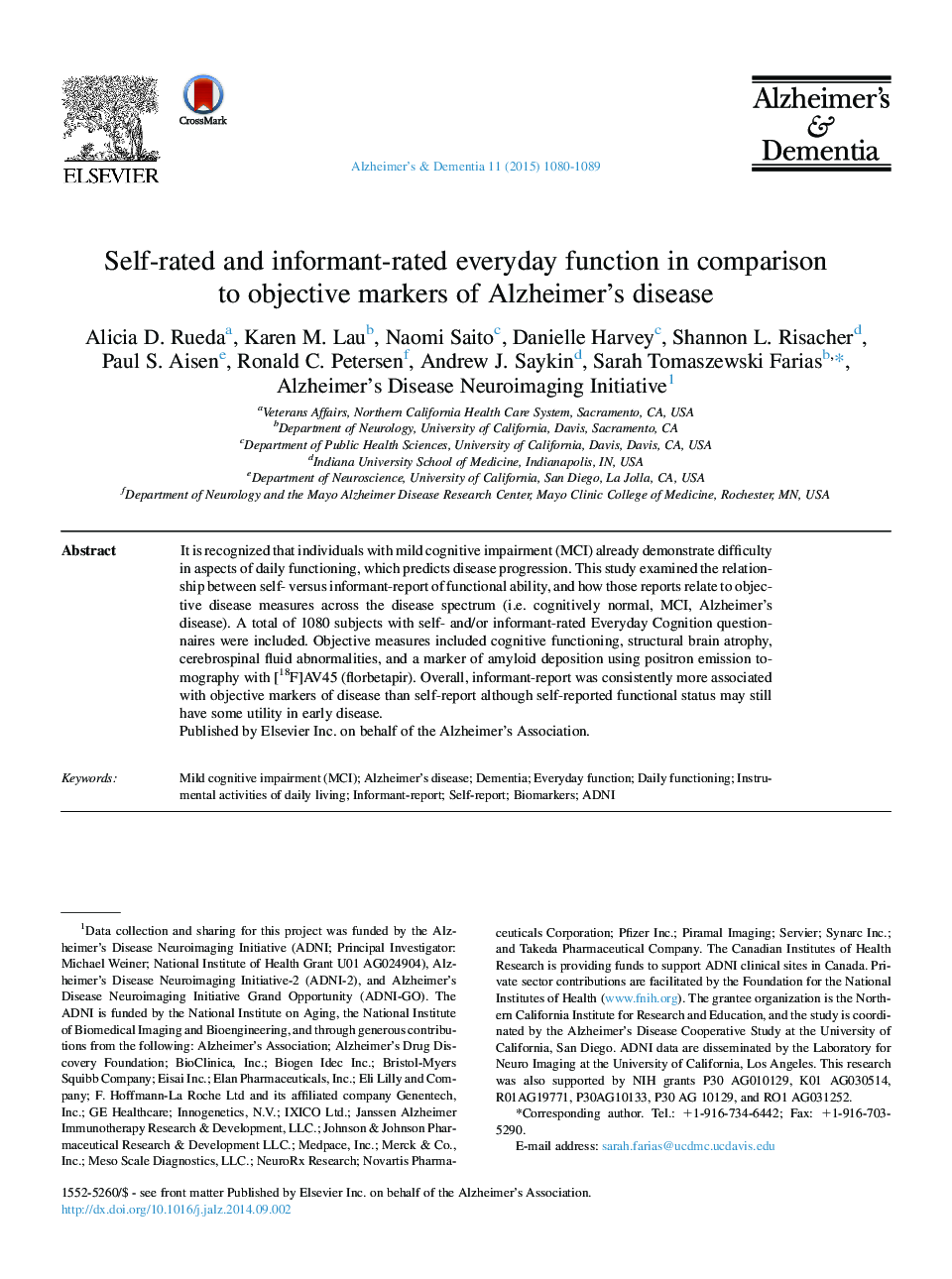| Article ID | Journal | Published Year | Pages | File Type |
|---|---|---|---|---|
| 5622628 | Alzheimer's & Dementia | 2015 | 10 Pages |
Abstract
It is recognized that individuals with mild cognitive impairment (MCI) already demonstrate difficulty in aspects of daily functioning, which predicts disease progression. This study examined the relationship between self- versus informant-report of functional ability, and how those reports relate to objective disease measures across the disease spectrum (i.e. cognitively normal, MCI, Alzheimer's disease). A total of 1080 subjects with self- and/or informant-rated Everyday Cognition questionnaires were included. Objective measures included cognitive functioning, structural brain atrophy, cerebrospinal fluid abnormalities, and a marker of amyloid deposition using positron emission tomography with [18F]AV45 (florbetapir). Overall, informant-report was consistently more associated with objective markers of disease than self-report although self-reported functional status may still have some utility in early disease.
Keywords
Related Topics
Life Sciences
Neuroscience
Neurology
Authors
Alicia D. Rueda, Karen M. Lau, Naomi Saito, Danielle Harvey, Shannon L. Risacher, Paul S. Aisen, Ronald C. Petersen, Andrew J. Saykin, Sarah Tomaszewski Farias, Alzheimer's Disease Neuroimaging Initiative Alzheimer's Disease Neuroimaging Initiative,
